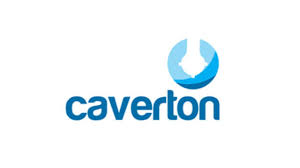Leading industry analyst and petroleum engineer, Dr. Bala Zaka has given insights on the key challenges hobbling effective takeoff of licencees of modular refineries in construction activities.
In an interview he said the government’s long-standing policy of regulating the prices of petroleum products, funding constraints and lack of requisite technical capacity by the licencees were largely for the stalled refinery projects.
Business Hilights gathered from the Department of Petroleum Resources (DPR) that it received over 100 applications from interested investors between 1990 and 2000 for the establishment of private refineries.
In 2002, 21 companies were granted licences to establish crude oil refineries, with a validity of 18 months. After the evaluation of the extent of engineering design work done, 17 of them were in 2004 granted approval to construct refineries, with a validity of 24 months.
However, due to the inability of the investors to make appreciable progress on the projects and the expiration of the construction approval, all the licences were cancelled in 2007. This led to a review of the statutory framework for licensing of private refineries and the issuance of the ‘Guidelines for the Establishment of Hydrocarbon Processing Plants in Nigeria’.
The agency disclosed that there are a total of 39 proposed modular refineries with capacity ranging from 5,000 barrels per stream day to 30,000bpsd, and six conventional plants with a total capacity of 1.35 million bpsd.
DPR also revealed that 18 out of the 45 companies were still sourcing funds, some of whose licences to establish had expired, adding that 20 licences were active.
The agency said seven companies could break ground, namely Waltersmith Refining & Petrochemical Company Limited (5,000bpsd modular plant in Imo State); Clairgold Oil & Gas Engineering Limited (20,000bpsd in Delta); Niger Delta Petroleum Resource (10,000bpsd in Rivers); Dee Jones (6,000bpsd in Cross River); Energia Limited (20,000bpsd in Delta); Southfield Petrochemical & Refinery Limited (20,000bpsd in Edo); and Starex Petroleum Refinery Limited (100,000bpsd in Rivers).
In 2012, the National Refineries Special Task Force, set up by the Ministry of Petroleum Resources said it examined 35 Greenfield private refinery licencees/applicants, and only seven were found to have reasonable potential.
The task force said it was evident that most of the applicants for a refinery licence did not have the requisite experience and background in petroleum refining and marketing.
The taskforce report averred that “Their technical capability is rather doubtful and their ability to attract the quantum of funds required for refinery projects, running into billions of naira, is questionable. Besides, in many instances, potential financiers evidently insisted on crude supply agreements at rates below international market prices, owing to the prevalent subsidised products pricing regime, as a condition for further consideration of funding applications”.









